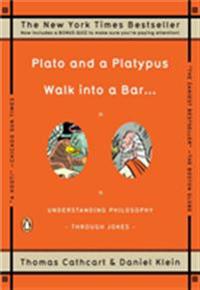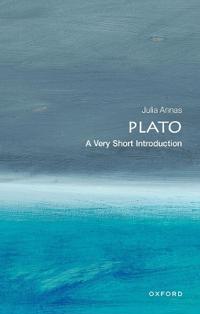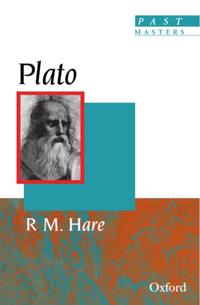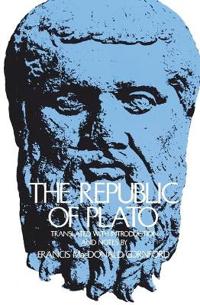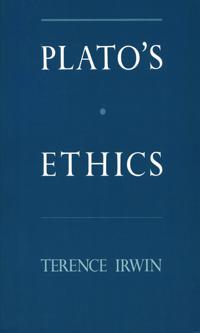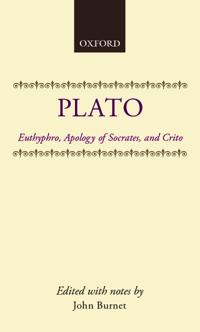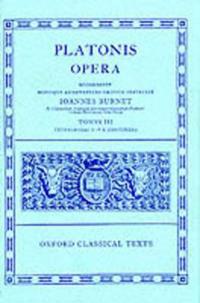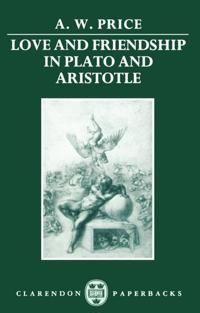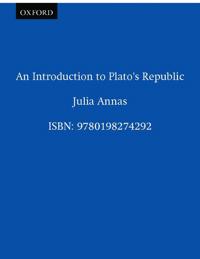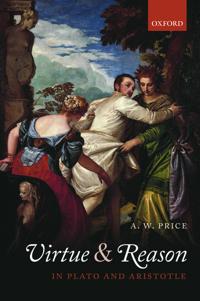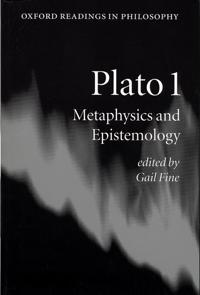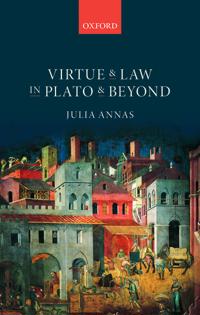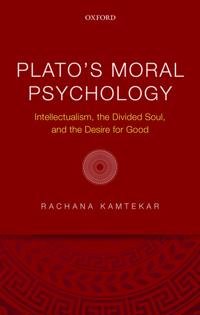Plato and a Platypus Walk Into a Bar . . .: Understanding Philosophy Through Jokes (Häftad)
avThomas Cathcart, Daniel Klein
ISBN: 9780143113874 - UTGIVEN: 200807
This New York Times bestseller is the hilarious philosophy course everyone wishes they'd had in school
Outrageously funny, "Plato and a Platypus Walk into a Bar" . . . has been a breakout bestseller ever since authors--and born vaudevillians--Thomas Cathcart and Daniel Klein did their schti[...]Origins of the Christian Mystical Tradition: From Plato to Denys
ISBN: 9780191537585 - UTGIVEN: 2015-06Scholars of the patristic era have paid more attention to the dogmatic tradition in their period than to the development of Christian mystical theology. Andrew Louth aims to redress the balance. Recognizing that the intellectual form of this tradition was decisively influenced by Platonic ideas of t[...]
Plato (Häftad)
avJulia Annas
ISBN: 9780192802163 - UTGIVEN: 200302This introduction to Plato focuses on the philosophy and argument of his writings, drawing the reader into Plato's way of doing philosophy, and the general themes of his thinking. It includes a brief account of Plato's life.[...]
Timaeus And Critias (Pocket)
avPlato
ISBN: 9780192807359 - UTGIVEN: 2008-11-13In Timaeus Plato attempts to describe and explain the structure of the universe: the creator god, the elements, the lower gods, the stars, and men. The companion piece, Critias, is the origin of the story of Atlantis, the lost empire defeated by ancient Athenians. This is the clearest translation y[...]
Plato (Storpocket)
avR.M. Hare
ISBN: 9780192875853 - UTGIVEN: 198210Even after twenty-three centuries Plato's work remains the starting-point for the study of logic, metaphysics, and moral and political philosophy. But though his dialogues retain their freshness and immediacy, they can be difficult to follow. Professor Hare has provided a short introduction to Plato[...]
Republic of Plato
ISBN: 9780195003642 - UTGIVEN: 1951-12Essestially an inquiry into morality, the Republic is the central work of the Western world's most famous philosopher. Containing crucial arguments and insights into many other areas of philosophy, it is also a literary masterpiece: the philosophy is presented for the most part for ordinary readers,[...]
Plato's Ethics (Häftad)
avTerence Irwin
ISBN: 9780195086454 - UTGIVEN: 199501This book expounds and examines Plato's answer to the normative question, 'how ought we to live?' It discusses Plato's conception of the virtues; his views about the connection between these and happiness; and the account of reason, desire, and motivation that underlies his arguments about the virtu[...]
Socrates Dissatisfied: An Analysis of Plato's Crito (Inbunden)
avRoslyn Weiss
ISBN: 9780195116847 - UTGIVEN: 1997-12-01Socratic Wisdom: The Model of Knowledge in Plato's Early Dialogues (Inbunden)
avHugh H. Benson
ISBN: 9780195129182 - UTGIVEN: 1999-10-01Virtue in the Cave: Moral Inquiry in Plato's Meno (Inbunden)
avRoslyn Weiss
ISBN: 9780195140767 - UTGIVEN: 2001-06-21Gorgias: A Revised Text, with Introduction and Commentary (Pocket)
avPlato
ISBN: 9780198144953 - UTGIVEN: 1990-03-01Plato Opera
ISBN: 9780198145424 - UTGIVEN: 1963-03(Thg., Chrm., Laches, Lysis: Euthd., Prot., Gorg., Meno; Hp. Ma. et Min., Io, Mnx.) Edited by J. Burnet.[...]
Plato on Parts and Wholes: The Metaphysics of Structure (Inbunden)
avVerity Harte
ISBN: 9780198236757 - UTGIVEN: 2002-09-19Heirs of Plato, The: A Study of the Old Academy (347-274 BC) (Inbunden)
avJohn Dillon
ISBN: 9780198237662 - UTGIVEN: 2003-01-30Plato's Reception of Parmenides (Inbunden)
avJohn A. Palmer
ISBN: 9780198238003 - UTGIVEN: 1999-04-08Love and Friendship in Plato and Aristotle
ISBN: 9780198248996 - UTGIVEN: 1990-12Reissued in 1997 with corrections and a new Afterword, this book fully explores for the first time an idea common to Plato and Aristotle, which unites their treatments - otherwise very different - of love and friendship. The idea is that although persons are separate, their lives need not be. One pe[...]
An Introduction to Plato's Republic (Pocket)
avJulia Annas
ISBN: 9780198274292 - UTGIVEN: 1981-06This book aims to make the Republic' accessible and intelligible to those coming to it for the first time, or with little or no philosophical background, but it also contains much of interest to the more advanced student.[...]
Virtue and Reason in Plato and Aristotle
ISBN: 9780198709350 - UTGIVEN: 2015-03In this illuminating study of the moral psychology of Plato and Aristotle, A. W. Price considers four related areas: eudaimonia, or living and acting well, as the ultimate end of action; virtues of character in relation to the emotions, and to one another; practical reasoning, especially from an end[...]
Plato 1
ISBN: 9780198752066 - UTGIVEN: 2000-01The aim of the series is to bring together important recent writing in major areas of philosophical inquiry, selected from a variety of sources. The editor of each volume contributes an introductory essay on the items chosen and on the questions with which they deal. A selective bibliography is appe[...]
Virtue and Law in Plato and Beyond
ISBN: 9780198755746 - UTGIVEN: 2017-12Julia Annas presents a study of Plato's account of the relation of virtue to law: how it developed from the Republic to the Laws, and how his ideas were taken up by Cicero and by Philo of Alexandria. Annas shows that, rather than rejecting the approach to an ideal society in the Republic (as general[...]
Plato's Moral Psychology
ISBN: 9780198798446 - UTGIVEN: 2018-02Rachana Kamtekar offers a new understanding of Plato's account of the soul and its impact on our living well or badly, virtuously or viciously. She argues that throughout the dialogues Plato maintains that human beings have a natural desire for our own good, and that actions and conditions contrary [...]

